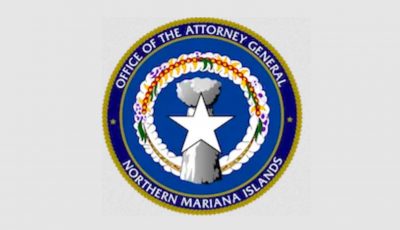THE CONSUMER CAUTION CORNER
Security tips for wireless connections, bluetooth, and passwords
This week, the Office of the Attorney General’s “Consumer Caution Corner” outlines the Federal Communications Commission’s security tips for wireless connections, Bluetooth, and passwords.
As access to wireless internet soars, Wi-Fi networks and Bluetooth connections have become vulnerable points of access for illegal activities. However, there are many ways to decrease your chances of becoming a victim of data or identity theft.
1) Encryption tips
No matter what kind of internet access you use, encryption is the best way to keep your personal data safe. Encryption scrambles the data in your message so that only the intended recipients can read it. When a website address starts with “https” instead of “http,” that indicates that encryption is taking place. Wi-Fi systems (i.e., “hotspots”) will generally inform you of the encryption they use.
Types of encryption:
1) Wired Equivalent Privacy (“WEP”)
2) Wi-Fi Protected Access (“WPA”) = the strongest one available, so use that whenever it’s available.
2) Bluetooth security tips
Bluetooth connections to your mobile devices can be very useful, from connecting a wireless headset to transferring files to enabling hands-free calling while you drive. But just like Wi-Fi connections, Bluetooth can put your personal data at risk if you are not careful.
Here are some steps you may wish to take when using Bluetooth:
Turn Bluetooth off when not in use. If you connect your mobile phone to a rental car, be sure to unpair your phone from the car and clear any personal data, such as call logs and saved numbers, from the car before you return it. When using Bluetooth, use it in “hidden” mode rather than “discoverable” mode.
3) Password tips
You likely have passwords for many accounts that you access online, and remembering them all can be a pain. Web browsers and other programs may offer to remember passwords for you, which can be a significant timesaver. However, certain password shortcuts can leave you less safe and secure.
The following good habits may help keep your personal information safer:
Do not use the same password for multiple accounts, especially for the most sensitive ones (e.g., bank accounts, legal, or tax records). Do not have your web browser remember passwords and input them for you. Do not use passwords that can be easily guessed (e.g., common words, birthdays, etc.). Instead, use a combination of letters, numbers, and symbols. The longer and stronger the password, the safer your information.
Each week, the OAG’s Consumer Protection Education Program shares Federal Trade Commission (“FTC”) and/or FCC publications that provide consumers and businesses with the “know-how” to identify and protect themselves from unfair trade practices and marketplace schemes. If you would like to file a Consumer Complaint, please pick up a Form at the OAG (in Capitol Hill) or request one by email from consumer_counsel@cnmioag.org. After completing the Consumer Complaint, please submit it by email or in-person. We cannot act as your private attorney. If you need legal assistance, we will recommend that you contact a private attorney or legal aid organization. We cannot give legal advice or act as your private attorney.
Michael J. Cyganek (Special to the Saipan Tribune)
Michael J. Cyganek is the consumer counsel o f the Office of the Attorney General.



























